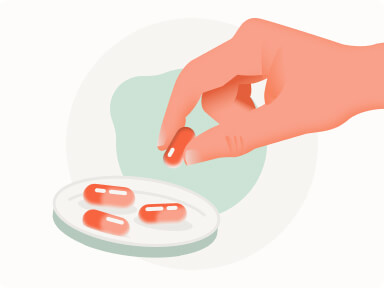
Refer a friend
Refer a friend or family member to join research study today and you will receive a $55 Visa gift card when they enroll.
Pick a friend or a family member who is new to Charter Research.
Fill out the form below.
Fill Out The Form
What to Expect
We search for cures
While the length and focus of clinical trials vary based on their intended goals, the general steps you'll take while participating remain the same.
Steps
Inquire about your eligibility.
Talk to a Charter team member.
Complete a physical exam — at no cost to you.
Receive the results of your exam.
Learn about any known side effects associated with the medicine being studied.
Sign an informed consent form.
Schedule your first visit as a patient.
Start a health journal, if required.
Attend all scheduled visits.
Complete your trial.
Return for a post-study follow-up visit.
Provide your feedback in an exit interview.
Our Expertise
Discover healthier
futures — together
We're partnering with people just like you in the search for innovative new treatments. Take a look at our current studies to see if you might be able to help in the search for innovative new treatments.
Stories of Hope
Many have participated in advancing health.
We believe you are the key to a healthier future — and hope — for so many. That’s why we commit to providing you the best experience possible when you participate in a study.
But don’t take our word for it. Hear first-hand from our patients about their experiences partnering with Charter.



Have Questions?
We believe in making medical research as transparent as possible.
Here are some frequently asked questions to shed more light on what it means to participate in a study.
Clinical trials allow scientists to gain insights into possible treatments for specific diagnoses, such as Alzheimer’s disease or Parkinson’s disease. Clinical trials are the best way for researchers to collect reliable data to improve existing drugs and to understand new drugs, including their effectiveness as treatments and any potential side effects.
Your participation is a key part of our work, but that doesn’t mean that all clinical trials are right for you.
Before you sign up, you should consider the following:
- Do I want to be part of a big trial or a small one?
- What is the purpose of the study?
- Who is sponsoring the study?
- Who has reviewed and approved this study?
- What is the chance of receiving a placebo, which is essentially the same as receiving no treatment?
Clinical trials are one of the medical field’s safest environments for testing new drugs. Every treatment that’s part of the standard of care—every prescription medication you take or give to a loved one—had to go through the clinical trial process before getting approved for use.
- Receive access to an investigational medication not currently available by a prescription.
- Receive consistent medical care by an expert medical team.
- Contribute to what is known about the condition.
- Advance the understanding and science around the condition.
- Help future people diagnosed with the condition by contributing to the advancement of standards of care and treatment.
You may be given a placebo and receive no investigational medication. The investigational medication may not provide you with any benefit. You could experience adverse side effects of the investigational medicine, and sometimes these can be serious.
- Phase 1 The earliest stage, is conducted to assess safety and dosing.
- Phase 2 Looks to assess preliminary effectiveness and dosing in a larger group of patients.
- Phase 3 Sometimes combined with Phase 2, test whether a medication works in a larger pool of patients.
Informed consent is a way to help you understand the clinical study and what is required from you as a participant. As part of the consent process, you’ll receive a document that details all information related to the study, including the possible risks and benefits. In addition to talking with your study physician, informed consent documents can help you decide if you would like to participate.
- What is the purpose of this clinical trial?
- What phase is this clinical trial and what does that mean?
- Have there been other trials similar to this one? If yes, what were the results?
- Will I find out about the results of the clinical trial?
- How could this clinical trial help me if I join?
- If I benefit from this therapy, will I be allowed to continue receiving it after the trial ends?
- What are the possible risks?
- How will the trial affect my daily life? How often will I have to come to the clinic for treatment?
- Will I have to change my daily activities or my diet?
No, participating with us in our clinical trials comes at no cost to you. In fact, you will be compensated for your participation.
No, you do not need medical insurance to participate in our trials. We will never request any payments from you or your insurance company. Participation in our clinical trials is always at zero cost to you. In fact, you will be compensated for your participation! The entire cost of the trial is covered by the study sponsor.
We would be happy to determine your eligibility by working with you through the screening process. To begin, please fill out the Prescreen Request Form or call us to schedule.
Participating in a clinical trial is completely voluntary, so you are free to stop participating at any time, for any reason. If you feel this is the best option for you, please talk to your care team.
By joining a research study, you’ll receive personalized care and gain access to education and community resources that you may not have otherwise. You’ll also have the opportunity to receive medications not currently available for prescription use that may provide relief or slow the rate of current symptoms. You’ll be a part of shaping more effective treatments and standards of care for generations to come.
Don’t see your question listed here?
We’d be happy to answer it for you.
Ask a question
One of our team members will follow up with you to answer your question.
Schedule Your Assessment
Sign up for an initial assessment (called a “prescreen”), and we'll give you a call. One of our professional medical staff will answer your questions and give you more information about Charter Research prior to an in-office visit.


